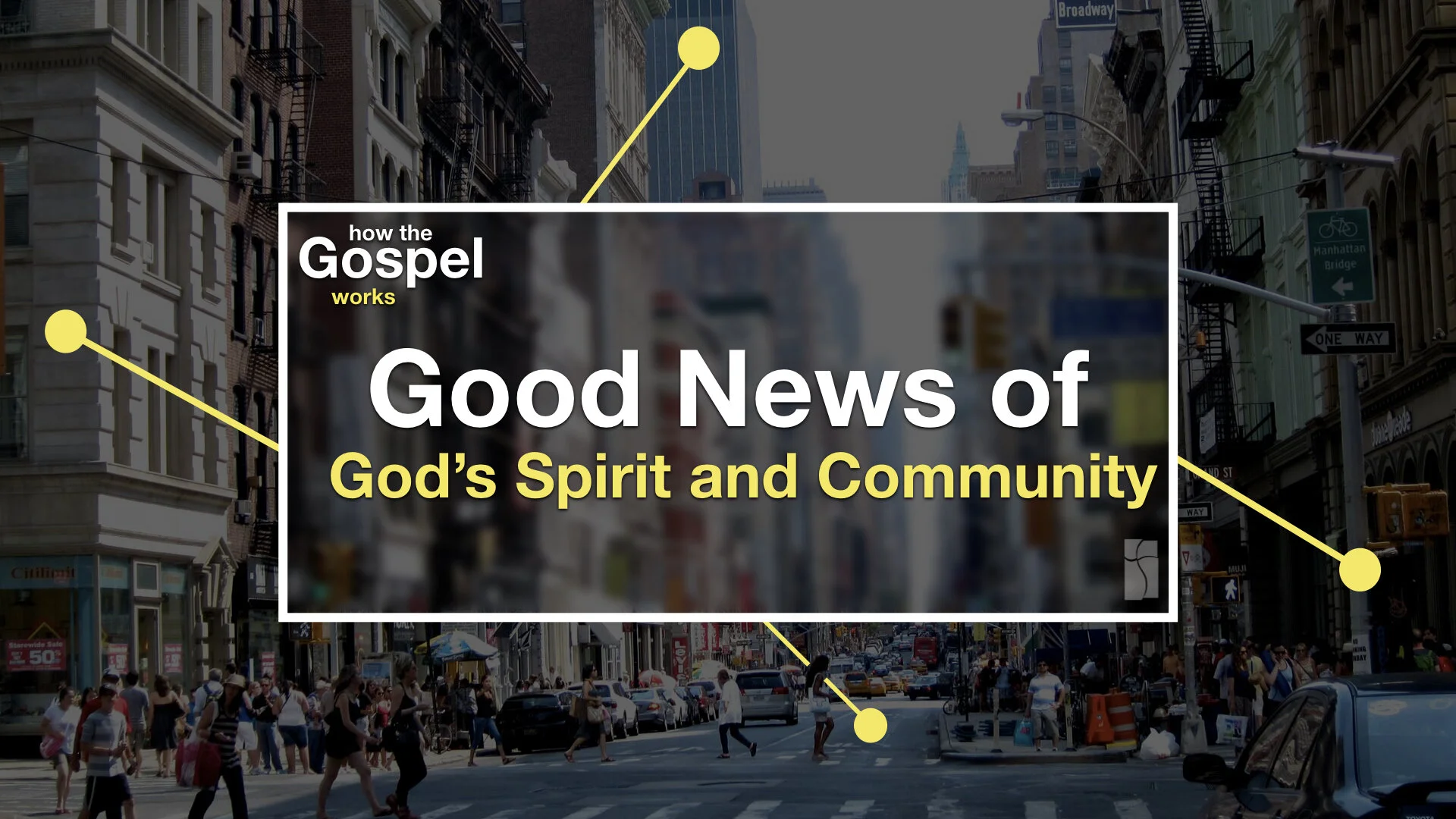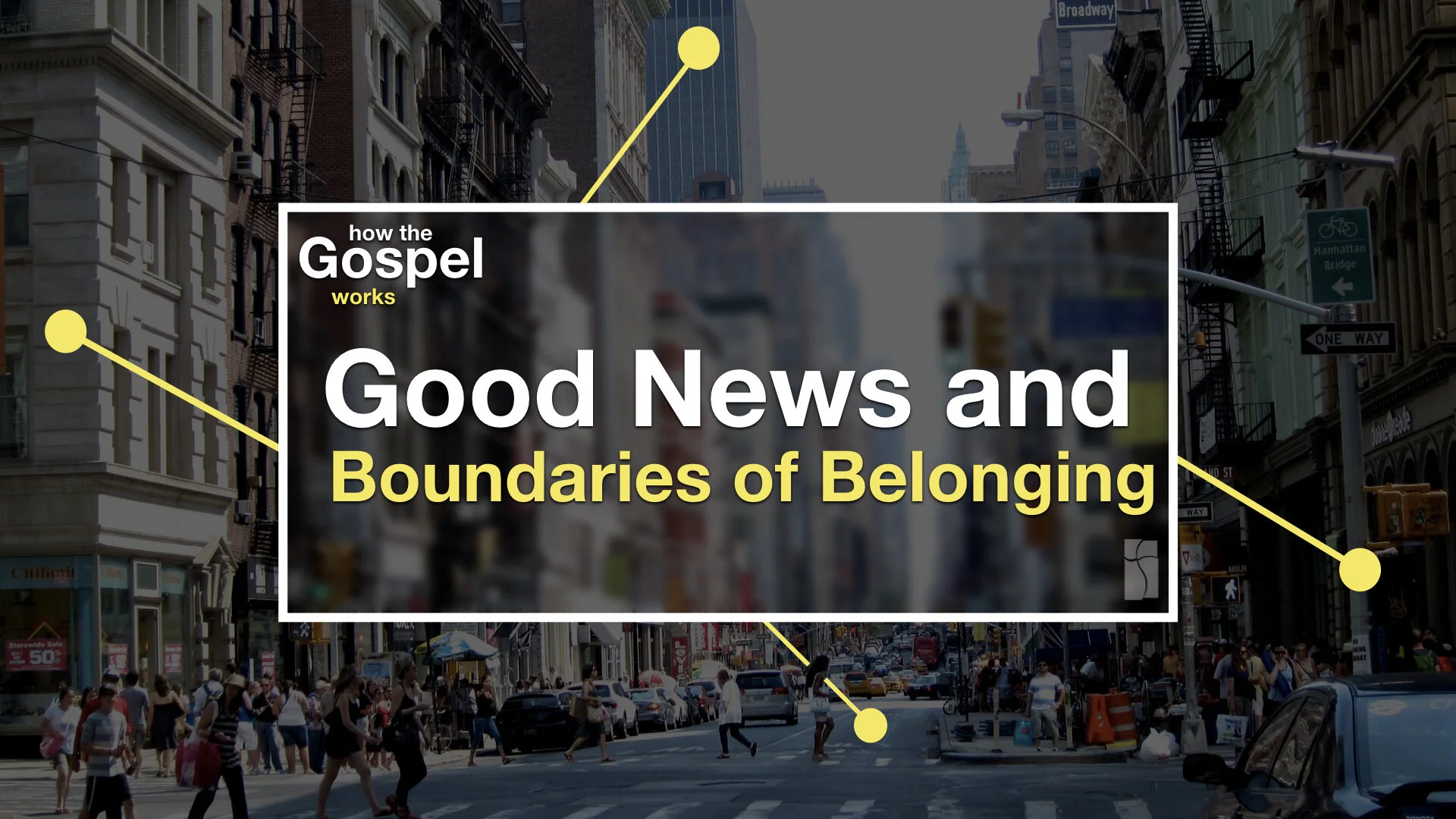Good News in a Marketplace of Ideas
Acts 17:15-34
The Marketplace of Ideas and Reality
In a marketplace of ideas, diverse points of view are competing for attention and acceptance. People compete to promote their views. The best ideas are supposed to win most followers. We love the concept! We also see that marketplace producing specialists in selling ideas, shaping opinion, lobbying those in power. Those with most resources often win. That’s life.
“Paul in Athens” doesn’t turn out right. To be effective, shouldn’t it be a story of success? But we see few converts. Here, Paul doesn’t win the competition of ideas. Why tell the story? Paul comes to the famous heart of Greek civilization. He goes both to the Synagogue and into the Agora, center of civic and cultural life. He talks to anyone, but advocates of famous philosophies challenge him: Stoics and Epicureans, both schools more than 300 yrs old with complex teachings. Paul is superficial talking about new divinities, Jesus and the Rising. Aeschylus long ago told that Apollo ins
Good News of God’s Spirit and Community
Acts 2:36-46
The Spirit Poured Out by a Crucified Messiah
The Gospel is the announcement of what happened in Jesus! But the event of Jesus goes on! The disciples were told to wait – this is God’s work. God comes as the Spirit’s poured out.
The waiting Peter speaks: Scripture, Jesus with Cross, Resurrection, Enthronement, and Spirit. All are surprised, captured, even Disciples. But it’s Good News even for the crucifiers.
All are called to changed thinking and practice. Jesus is the Anointed One. Plunge in! God’s Spirit is given to you as never before. People respond from everywhere. 3,000 baptized.
The Spirit shapes a new community. Thousands of stories, lives to change. Devotion to several things: Teaching, learning, realizing the breadth and depth of what God has done. Shared life, a new community beginning to cross all boundaries. Breaking bread: Jesus death and life in shared meals. Prayers, a renewed relation with Abba, new hopes, needs. They realize a oneness and new reality that sees possessions in a new way, as resources to share. They flood the temple as a united group and share intimacy in scores of homes.
Good News and Boundaries of Belonging
The Spirit’s Surprise in the Spreading Good News
Jesus sent the Apostles out to make disciples of all nations (Mt 28:18-20). On Pentecost, Jews from many nations/languages were gathered in Jerusalem when the Spirit came. Acts unfolds the story as these diverse Jews respond, and God creates new community.
But there’s irony as the Apostles stay in Jerusalem when persecution comes. Greek-speaking leaders go out. The great story of the inclusion of Gentiles is Acts 10: Cornelius and Peter. We see that Peter never intended to go to foreigners, till pushed by God’s Spirit. He has to learn that God shows no partiality. God’s Spirit comes unexpectedly and pushes him.
But even earlier, Acts tells of Philip, a leader among Greek-speaking Jews. Under persecution he goes out to Samaritans alienated from Jews. People respond with joy. But surprisingly the Spirit doesn’t come. There needs to be unity across old wounds and prejudices. The Spirit waits till apostles come from Jerusalem. Jews and Samaritans are united in Jesus.
Dawning Light from Resurrection to Pentecost
Acts 2:1-4; 32-33; Luke 24:1-10
Celebrating Pentecost
One day of the year that Paul especially honored was Pentecost, the 50th day after Passover, the Feast of Weeks. Something happened that changed the world.
The result and power of all that had happened in Jesus began to be poured out for humans in everyday life: God fulfilled his promises from creation and throughout Israel’s long history and opened that history wide for all the rest of the world to participate.
In the incarnation in Jesus, God united God and human. God’s self-giving love embodied in creation and covenant he gave in new form by taking to himself human suffering, brokenness, sin and death. He defeated death by the creation of new life in Jesus’ resurrection from the dead. On Pentecost all of this was poured out for all people, beginning with the Jews. God and human were united in a new way by the gift of God’s own self, God’s life, God’s power in the Holy Spirit given to those who trusted in all that Jesus had done. God filled broken human life with love, joy, and hope by beginning the process that will finally defeat death and unite all reality in resurrection, new creation.
Pentecost – Spirit, Proclamation, Community
Acts 2:1-47
What is God Doing? Acts looks back to Pentecost - a remarkable beginning. Not careful planning and strategy. Not insight by Apostles. Yes, they were prepared by Jesus. But they were carried along by God’s intervention. God waited till Pentecost for the meaning of the feasts. Passover: deliverance. Pentecost: Covenant, Community, Giving of Torah - God breaking in. God intervenes in power and symbol in the language of Israel’s story: ‘Wind’ of creation, ‘Fire’ of Sinai. Human voices. Understanding. Babel is reversed. A light to the nations.
Can You See the Cross?
Acts 9:1-10, Galatians 3:26-28
Kyle Swann, our MDiV student intern from Princeton Seminary, brings us a message on the transformative power of the cross in the life of Paul.
Athens: Do Philosophers Need Jesus?
Acts 17:16-34
Paul in Athens – a View on the World
Paul has encountered the diaspora synagogue (Antioch), popular paganism (Lystra), Roman domination (Philippi). Now after Thessalonica and Berea, he comes to Athens, worried for the survival of the infant churches.
Athens, the most famous city in the Greek world, not big or powerful, but very influential, a university city with an unmatched cultural heritage.
Again he starts with the synagogue, where people know Israel’s story, but he also goes to the famous Agora/plaza, with the open-air Stoa/colonnade, that gave Stoic philosophy its name. Where popular philosophies, ‘world-views,’ were taught, debated, shaping shapers of culture.
Here he meets not persecution but puzzlement. He uses ideas people recognize, but puts them together in strange ways, a ‘phrase-dropper.’ He talks about Jesus and Anastasis/Rising.
Philippi-Joy Facing Painful Challenges
Acts 15:12-34
Roman City and Its Cast of Characters
Paul is on his 2nd mission journey (with Silas, Timothy, Luke and others).
He crosses into Europe to Philippi, named for Alexander the Gt.'s
father. Site of battle of Mark Antony and Octavian against Brutus and Cassius, a colony of Rome. On Roman "Egnatian Way."
There is a Jewish community with a 'Place of Prayer' outside the city walls near Gangites River. Paul finds women there (sitting apart from men?) including Lydia, a merchant, a gentile 'God- fearer,' seeking new identity. She listens to the story of Jesus as Lord, becomes a believer in the Lord. She is baptized and offers her home as a base for the group teaching others by the river.
Antioch too and Lystra, Stories Made New
Acts 13:21-43
New Territory, Changing Audiences, Continual Danger
Paul and Barnabas left Antioch of Syria, worked in Cyprus, crossed to Asia Minor, traveled north through mountains of Pisidia into Phrygia to Antioch, a Roman garrison, then to Iconium and Lystra in Lycaonia, a Roman garrison. Layers of old culture, Greek, Roman. Jewish communities. Travel was very dangerous. The ethnic conflicts in cities were sensitive. Jews were vulnerable.
The message of Paul and Barnabas set off conflicts in all three cities. Jewish teaching already had impact in these cities: “God-fearing” Gentiles and Proselyte converts. A major identity shift. Paul comes saying that in Jesus, faith in Israel’s one God, forgiveness and life are now open to all ethnic groups. No new religion, but a realization that Israel’s faith through the Messiah was for all.
Antioch, Multi-Cultural Mission
Acts 11:19-26; 13:1-3
Antioch -- History, Pain, and Hope
Antioch was capital of Roman Syria, founded in 300 bc after Alexander Gt. By Seleucus I, named for his father Antiochus. On the Orontes River controlling trade from south and east into Asia Minor and Europe. Fortress, 2 sq miles, 150,000 people in 1st cent. ad. (nearly 2x as dense as modern Manhattan). Had Jewish community from beginning with some rights, conflicts. Antioch was important in NT times as the place where inclusion of Gentiles became substantial and mission to Gentiles began.
Caesarea, Barrier-Leaping Spirit
Acts 10:34-48
Caesarea: New City, Roman Center
Caesarea, built by Herod the Gt., gift of Augustus. 10 bc. Harbor. Excavations. Many Caesareas. Mixed pagan and Jewish. Herod's Temple to Augustus. Like other Gk cities. Center of Roman government. Pilate inscription.
Philip came there after Jerusalem (6:1-7), Samaria (8:5-25), and the Ethiopian (8:26-40). He was a leader of Gk-speaking believers who began the process of realizingthe promise of Pentecost, reaching out to the world. The Spirit pushed him to new encounters. Now that same Spirit pushes Peter. Luke shows Peter had no intention of going to non-Jews, but visions to Cornelius and Peter (10:1-23) show God's determination to leap that barrier.
Jerusalem - Transformative Community
Acts 2:37-47
From Jerusalem to Rome – Hope among City Crowds
Though Jesus came from a village, the Faith in him spread from city to city across the Roman empire. The Spirit came at Pentecost among the crowds gathered from far and wide. The messengers of this new hope, love, understanding of God and life in Jesus took their announcement into the meeting places and markets of Jerusalem, Rome, and far beyond.
Crowds are ‘dumb and panicky’ (MiB), a person is smart. On Pentecost Peter spoke in the court of the great Jerusalem Temple to the persons who had been part of the crowd that crucified Jesus. When they listened to the promise of scripture in Prophets and Psalms, they realized one by one that they had rejected the very Messiah (anointed King) they hoped for.





